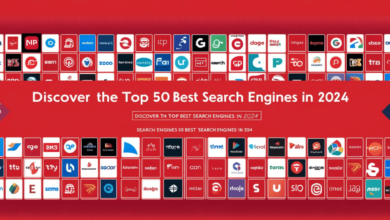
In today’s digital landscape, the phrase “businesses near me” has become a crucial tool for consumers and businesses alike. Whether you’re searching for a new restaurant to try, a reliable mechanic, or a trustworthy accountant, the ability to quickly find local businesses that meet your needs is more important than ever. With the rise of mobile searches, the demand for local business information is at an all-time high, and businesses must understand how to optimize for these searches to stay competitive.
The Growing Trend of “Near Me” Searches
Searches containing “near me” have skyrocketed in recent years, with consumers increasingly relying on their smartphones to find nearby services and products. This shift in behavior has made local SEO a critical component of any business’s digital marketing strategy. Understanding how to rank for these searches can significantly impact your business’s visibility and success.
Why Local Businesses Need to Rank for “Near Me” Searches
For local businesses, appearing in “near me” searches can be the difference between thriving and being overlooked. When potential customers search for “businesses near me,” they are often ready to make a purchase or visit a location immediately. Ranking high in these search results means you’re more likely to attract these ready-to-act customers, driving foot traffic and increasing sales.
How to Optimize Your Business for “Businesses Near Me” Searches
1. Claim and Optimize Your Google My Business Listing
Your Google My Business (GMB) listing is the cornerstone of local SEO. It’s often the first thing users see when searching for businesses near them, so ensuring it’s fully optimized is essential.
- Complete Your Profile: Fill out every section of your GMB profile, including your business name, address, phone number, website, hours of operation, and categories.
- Use High-Quality Images: Upload high-quality images of your business, products, and services to attract potential customers.
- Encourage Reviews: Positive reviews can boost your ranking in local searches and enhance your business’s reputation.
2. Ensure Consistency Across All Online Directories
Consistency in your business information across all online platforms is vital for local SEO. Search engines value accurate and consistent data, so discrepancies can harm your rankings.
- Use a Citation Management Tool: Tools like Moz Local or Yext can help you ensure that your business information is consistent across all online directories.
- Regularly Audit Your Listings: Periodically check your listings to ensure they remain accurate and up-to-date.
3. Leverage Local Keywords in Your Content
Incorporating local keywords into your website’s content can significantly improve your chances of ranking for “businesses near me” searches.
- Use Location-Specific Phrases: Include the name of your city or neighborhood in your website’s content, meta descriptions, and headings.
- Create Localized Content: Write blog posts, articles, and service pages that focus on local events, news, or trends related to your industry.
4. Optimize for Mobile Users
Given the rise of mobile searches, your website must be mobile-friendly. A site that’s difficult to navigate on a smartphone can deter potential customers and harm your rankings.
- Use a Responsive Design: Ensure your website automatically adjusts to fit the screen size of any device.
- Improve Page Load Speed: Slow-loading pages can lead to high bounce rates. Use tools like Google PageSpeed Insights to identify and fix any issues.
Enhancing User Experience to Rank Higher
5. Focus on Local Link Building
Building local links is an effective way to enhance your local SEO efforts. These links can come from local news outlets, blogs, or business directories.
- Partner with Local Influencers: Collaborate with local influencers who can link back to your website.
- Sponsor Local Events: Sponsoring local events can result in valuable backlinks from event websites.
6. Utilize Schema Markup for Local SEO
Schema markup is a type of microdata that helps search engines understand the content of your website. Implementing local business schema can improve your visibility in local searches.
- Add Your Business Information: Include details like your business name, address, phone number, and hours of operation in your schema markup.
- Use Google’s Structured Data Markup Helper: This tool can help you generate the appropriate schema markup for your website.
7. Encourage Customer Reviews and Respond to Them
Customer reviews play a significant role in local SEO. Not only do they impact your rankings, but they also influence potential customers’ decisions.
- Ask for Reviews: Encourage satisfied customers to leave reviews on Google, Yelp, and other relevant platforms.
- Respond to All Reviews: Whether positive or negative, responding to reviews shows that you value customer feedback and are committed to improving your business.
Technical SEO for Local Searches
8. Ensure Fast Website Loading Times
A slow website can deter potential customers and negatively impact your rankings. Website speed is a crucial factor in user experience and SEO.
- Optimize Images: Compress images to reduce their size without sacrificing quality.
- Minimize HTTP Requests: Reduce the number of elements on your page to decrease load times.
9. Create Location-Specific Landing Pages
If your business operates in multiple locations, creating location-specific landing pages can help you rank for “businesses near me” searches in each area.
- Include Local Content: Tailor each landing page’s content to the specific location it targets.
- Use Local Keywords: Incorporate local keywords into the meta descriptions, headings, and content of each landing page.
10. Track and Analyze Your Local SEO Performance
Regularly tracking your local SEO efforts can help you identify what’s working and what needs improvement. Use tools like Google Analytics and Google Search Console to monitor your performance.
- Set Up Local SEO Metrics: Track metrics such as local search rankings, website traffic, and conversion rates.
- Adjust Your Strategy: Based on your analysis, make data-driven decisions to refine your local SEO strategy.
Conclusion
Ranking for “businesses near me” searches is crucial for local businesses looking to attract nearby customers. By optimizing your Google My Business listing, ensuring consistency across directories, leveraging local keywords, and focusing on user experience, you can improve your chances of ranking high in these searches. Additionally, technical SEO aspects like website speed, schema markup, and location-specific landing pages play a significant role in your local SEO success. By following the strategies outlined in this article, your business can stay ahead of the competition and attract more local customers.
FAQs
1. How do I get my business to show up in “businesses near me” searches?
To show up in “businesses near me” searches, ensure your Google My Business listing is fully optimized, use local keywords in your content, and maintain consistent business information across all online directories.
2. What role do customer reviews play in local SEO?
Customer reviews significantly impact your local SEO rankings. Positive reviews can boost your visibility, while responding to reviews (both positive and negative) demonstrates your commitment to customer satisfaction.
3. How important is mobile optimization for local SEO?
Mobile optimization is crucial for local SEO, as a large percentage of “businesses near me” searches are conducted on mobile devices. A mobile-friendly website ensures a better user experience and can improve your rankings.
4. What is local business schema markup, and why is it important?
Local business schema markup is a type of microdata that helps search engines understand your business’s location and other important details. Implementing this markup can improve your visibility in local searches.
5. How can I track my local SEO performance?
You can track your local SEO performance using tools like Google Analytics and Google Search Console. Monitor metrics such as local search rankings, website traffic, and conversion rates to assess your strategy’s effectiveness.



